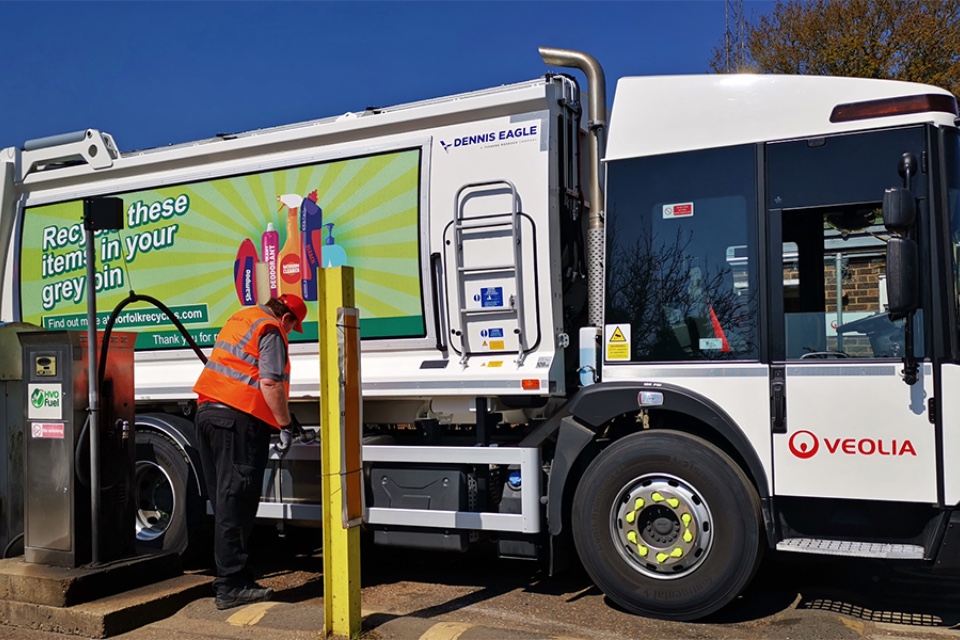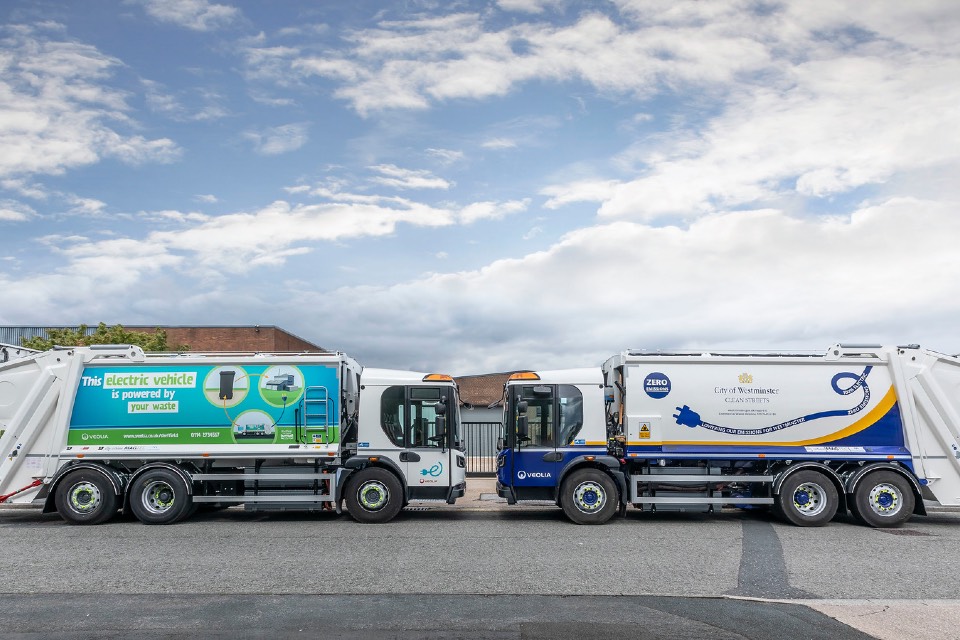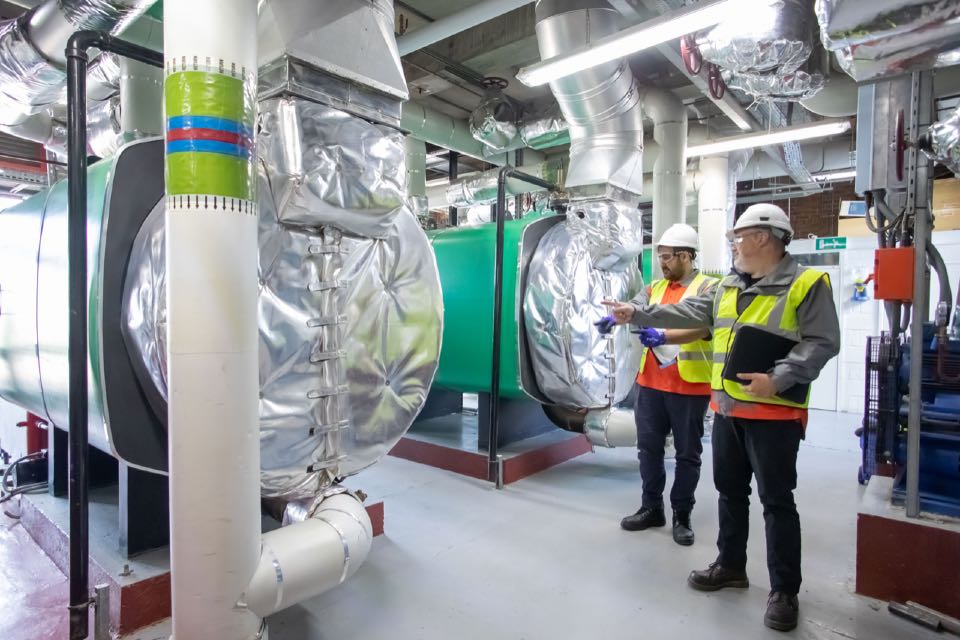Veolia uses hydrotreated vegetable oil for first renewable fleet
https://energymanagementsummit.co.uk/wp-content/uploads/2022/04/Broadland-tom-HVOpump2.png.jpg 960 640 Stuart O'Brien Stuart O'Brien https://secure.gravatar.com/avatar/81af0597d5c9bfe2231f1397b411745a?s=96&d=mm&r=gBroadland District Council’s latest contract for all waste collection services including residual, recycling and food waste and for street cleaning with Veolia will see the FM specialist utilise a renewably-fuelled fleet for the first time.
The 10 year contract that started in April 2022 has an option for an extension of up to a further 10 years.
Reducing energy consumption and reaching carbon neutrality is essential for combating climate change and the new contract includes a commitment to reduce operational emissions and to develop low carbon solutions. This supports Broadland District Council’s priority to protect the environment and for continuous environmental improvement.
Every vehicle in the fleet is fully powered by Hydrotreated Vegetable Oil (HVO), a bio-based liquid fuel made from vegetable oils and animal fats. HVO is a low carbon, low emission, fossil-free and sustainable alternative to conventional fossil diesel which eliminates up to 90% of net CO2 and reduces nitrogen oxide (NOX), particulate matter (PM) and carbon monoxide (CO) emissions.
HVO fuel is fully interchangeable with conventional diesel and can be used pure or blended with fossil diesel if required. The fleet in the Broadland district will be solely powered by HVO in a first for Veolia in the UK.
Councillor Judy Leggett, portfolio holder for Environmental Excellence, said: “We’re very pleased to be continuing our very successful working relationship with Veolia through the award of this major new contract. The contract brings together an excellent service for residents with innovative new approaches which will help to make our waste and recycling services more effective and even more environmentally friendly. This new contract will help drive us towards our aim of being carbon neutral well ahead of the Government’s 2050 target.”
Pascal Hauret, Managing Director Municipal, Veolia UK said: “We’re delighted to launch our first fully HVO powered fleet in Broadland. HVO significantly reduces CO2 emissions so this is a hugely positive step in our shared commitment to net zero. Importantly, whilst the availability of HVO is still limited in the UK, Veolia has secured a guaranteed supply for the entire contract term.”
The new contract also offers residents an enhanced service with the introduction of weekly kerbside collections of small electrical and electronic equipment (WEEE) and textile collections.
The Council will continue to roll out food waste collections and will now be able to achieve its goal of food waste collections to all Broadland residents in 2023.




